Each compound is a little different but for the most part they are designed to give their residents as many of the standard comforts of home as possible. In this multi-part series on compound life we will share details and pictures to give you a better feeling for what it’s really like to live and work on a compound in KSA.
Upon Arrival:
Once you arrive in KSA to start your job you will typically be provided with a house directly or placed in a hotel for a short period if your assigned housing is not yet ready. Typically, the housing will be ready the day you arrive but in some rare cases I have heard of people needing to spend a little time (usually no more than 2-3 weeks) in a hotel. In either case the only thing you really need to bring with you are clothes. Literally everything else you need is provided even down to linens, towels, appliances, and kitchenware. Of course, over time you may want to personalize your house and if you are very particular about things like your bed, furniture, etc. you might end up buying a few household items, but you don’t have too and certainly not right away. In the following post we will share some details including pictures from our own house to give you a better feel of what to expect.
Housing:
The compounds provide housing primarily based on the size of the family and the position of the employee. Typically for a single individual or married couple with no kids a 2-bedroom apartment or town house is provided and is the smallest option available. These apartments and town houses are typically around 800-1000 square feet in size and have 2 bedrooms, 2 full-bathrooms, a living room, and small balcony. Covered parking is available but no attached garage.
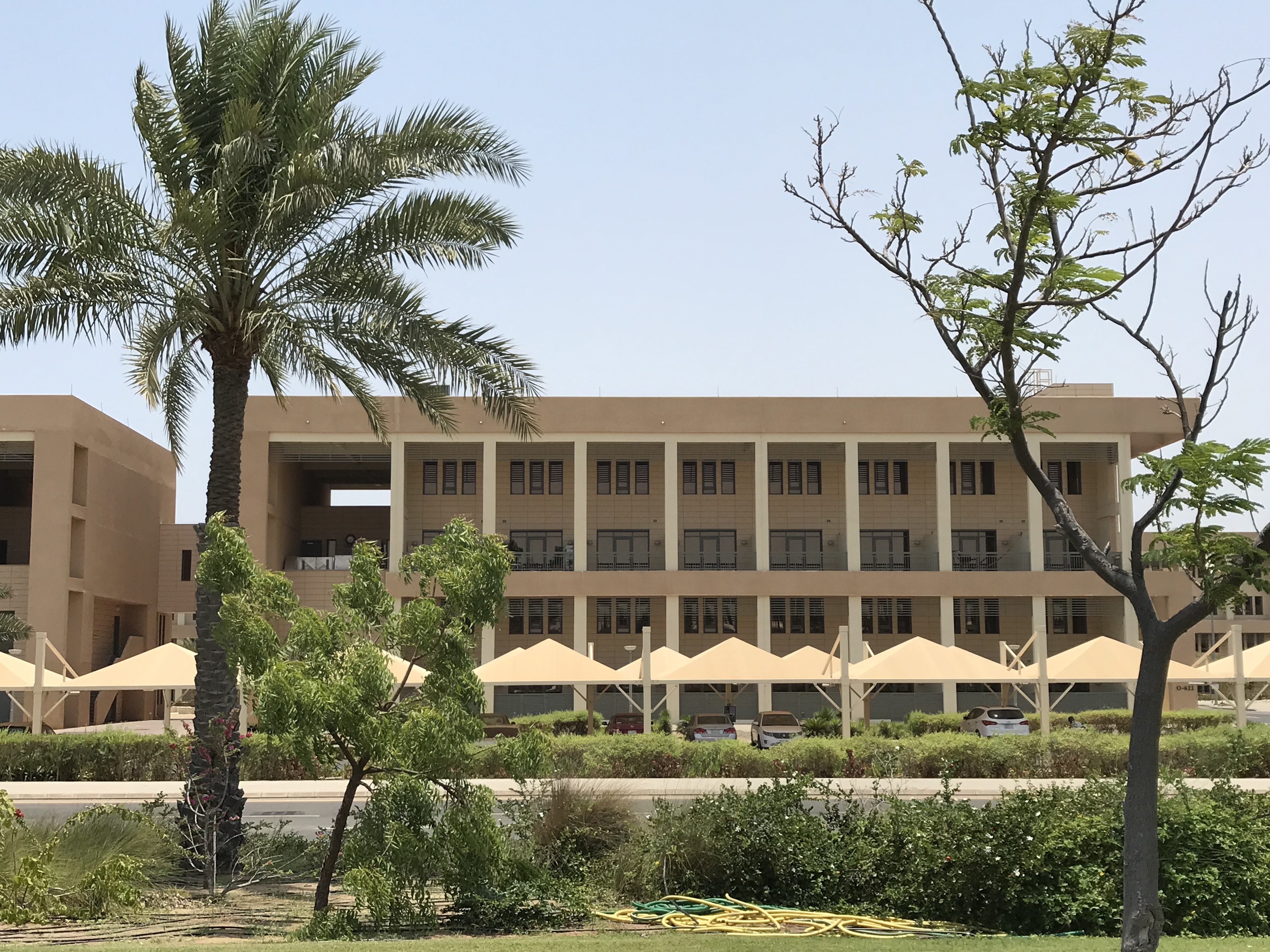
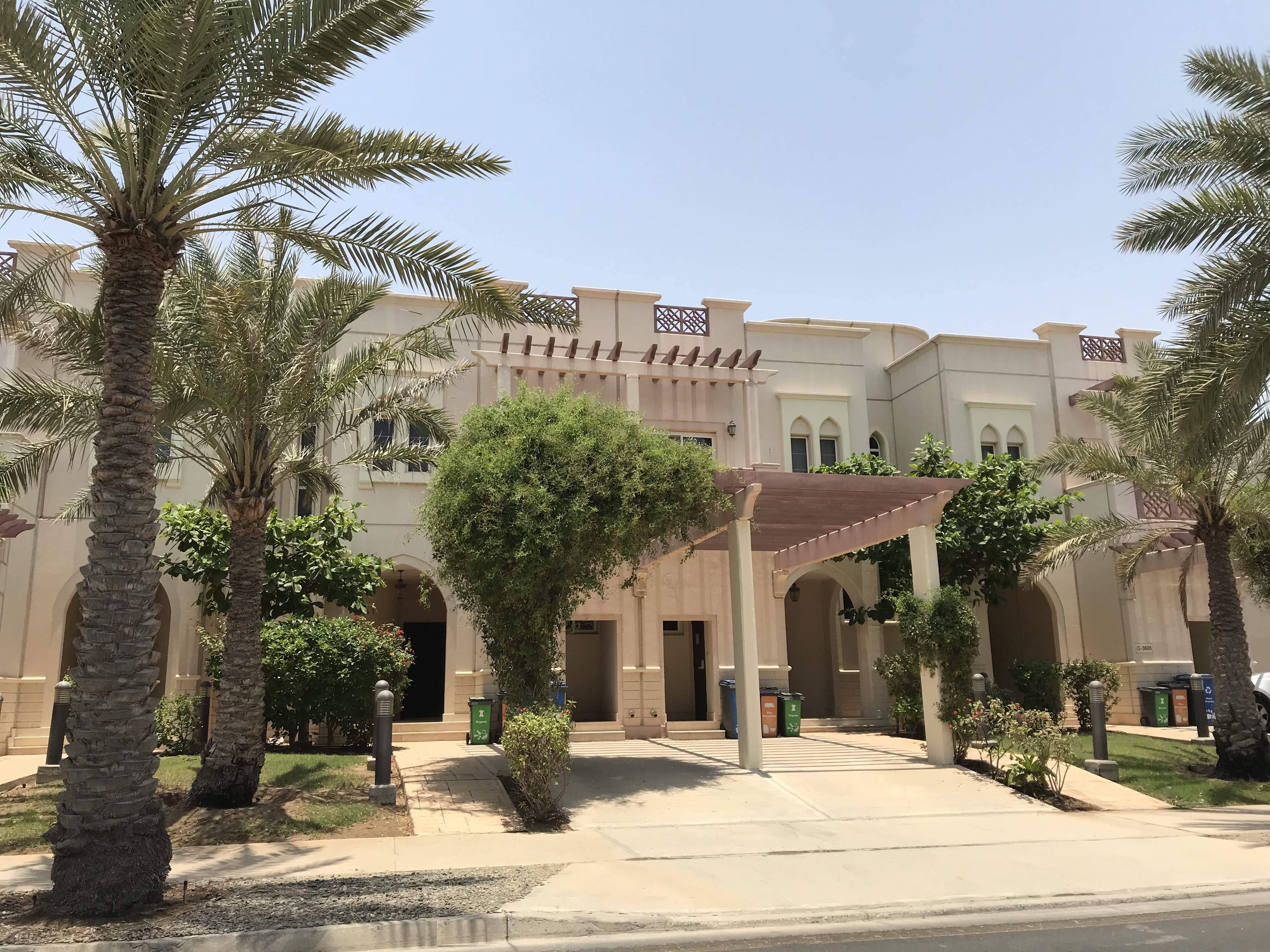
For those married with one child either a 2-bedroom town house or 3-bedroom house is provided depending on the position of the employee. The 3-bedroom houses provide 3 bedrooms as well as a very small 4th bedroom that is meant for a live-in “domestic helper”. More on the Domestic Helpers in the next section. The 3-bedroom houses are typically 1800 – 2000 square feet in size and include 3 full and 1 half bathrooms, a living room, attached 1 car garage, and an enclosed backyard.
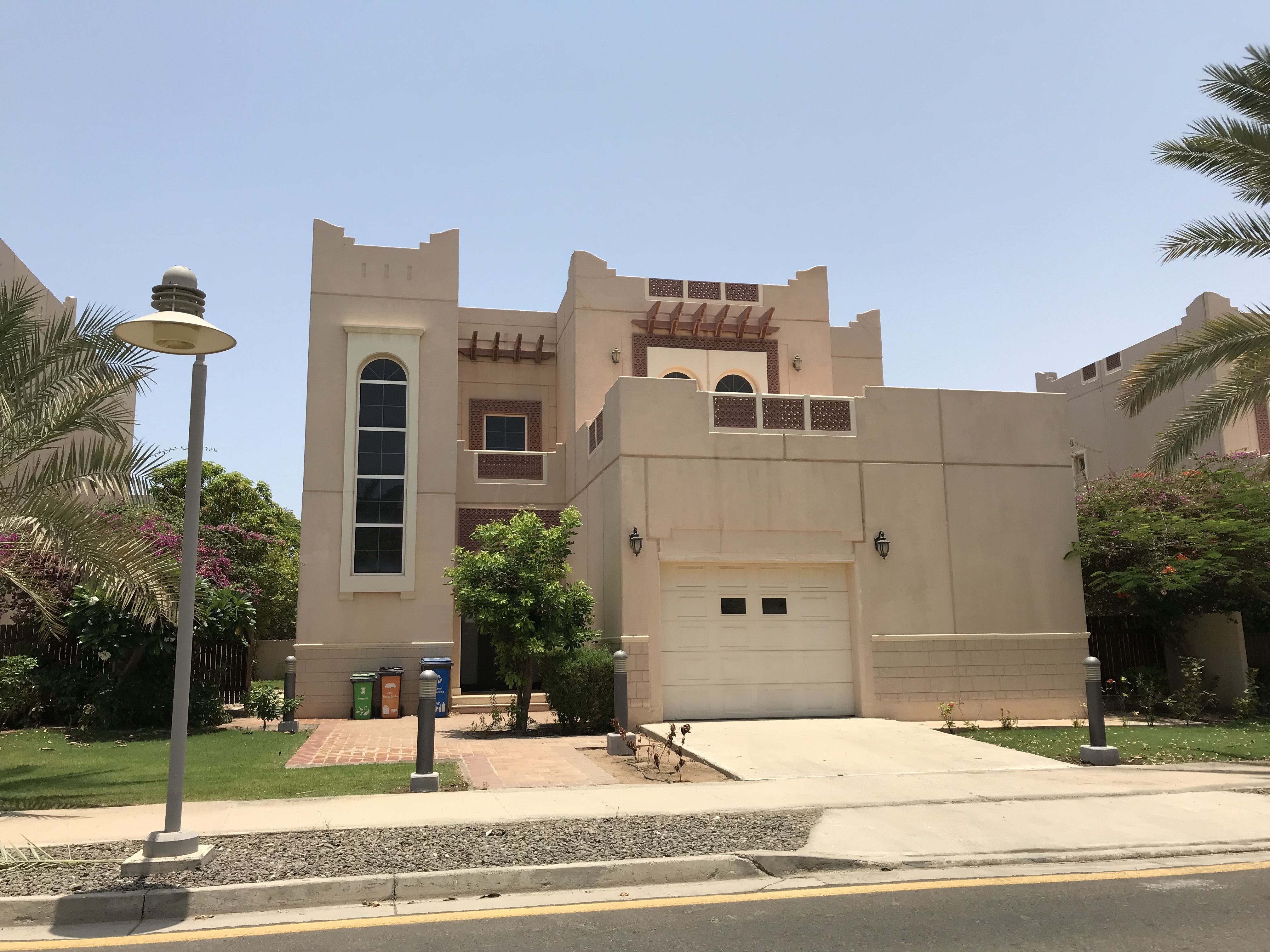
Finally, for higher level employees as well as any families with 2 or more children the largest available option will be assigned which is a 4-bedroom house. These houses are very large and are typically more than double the size of the 3-bedroom homes at around 4500 square feet. All four bedrooms are located on the 2nd floor and have their own attached private bathrooms. The master bedroom and guest bedroom also have their own attached private balconies. The downstairs has two living rooms (one for men and one for women, but for us it becomes one for the kids and one for the parents), a large dining room with seating that can comfortably accommodate 10, a fully furnished office, entry way/parlor area, kitchen, 2 half bathrooms, and the domestic helper’s room and small attached bathroom. Since we don’t have a live-in domestic helper this room is a second office and storage area. The back yard runs the length of the house and contains a patio area as well as yard space.
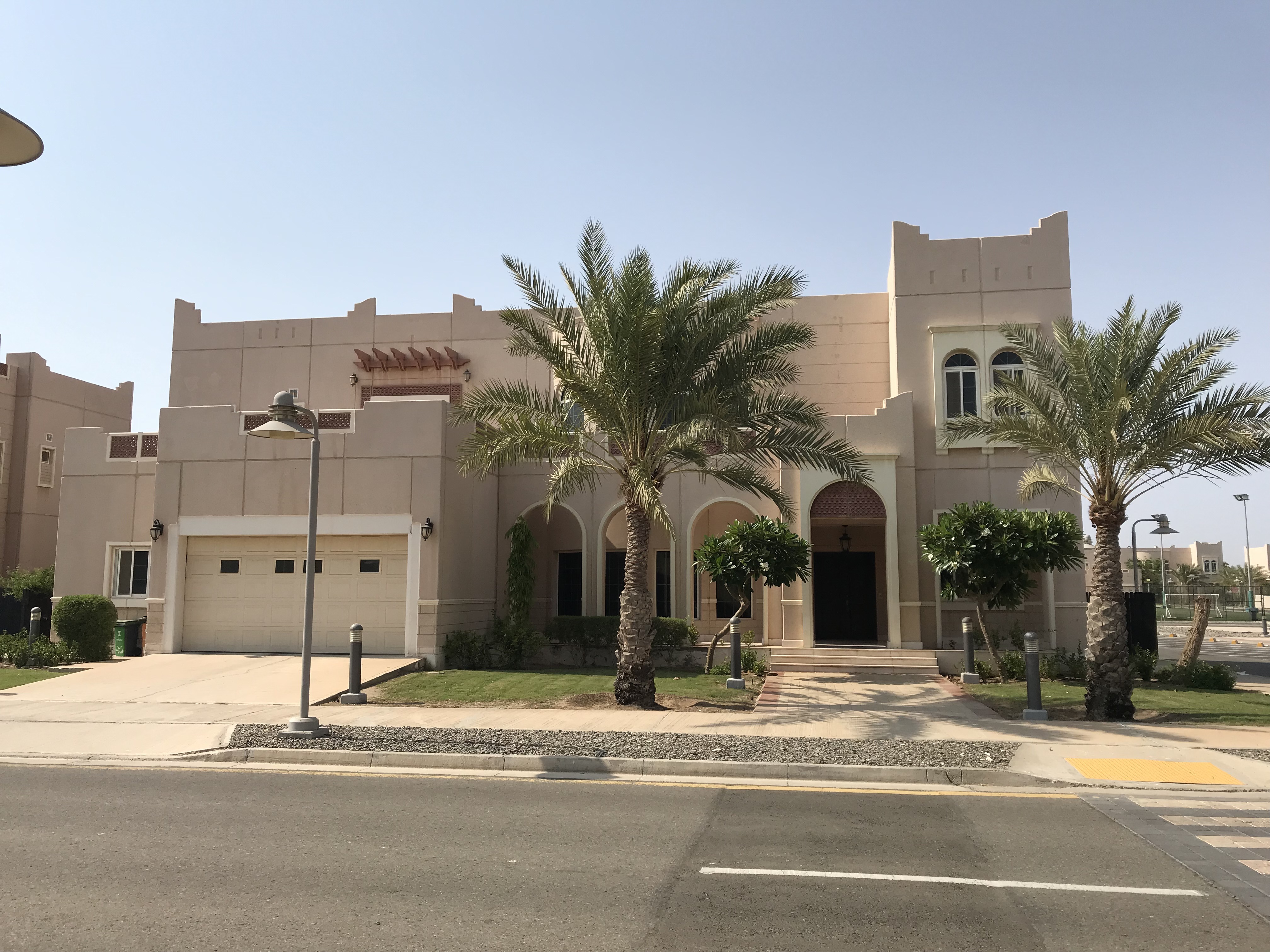
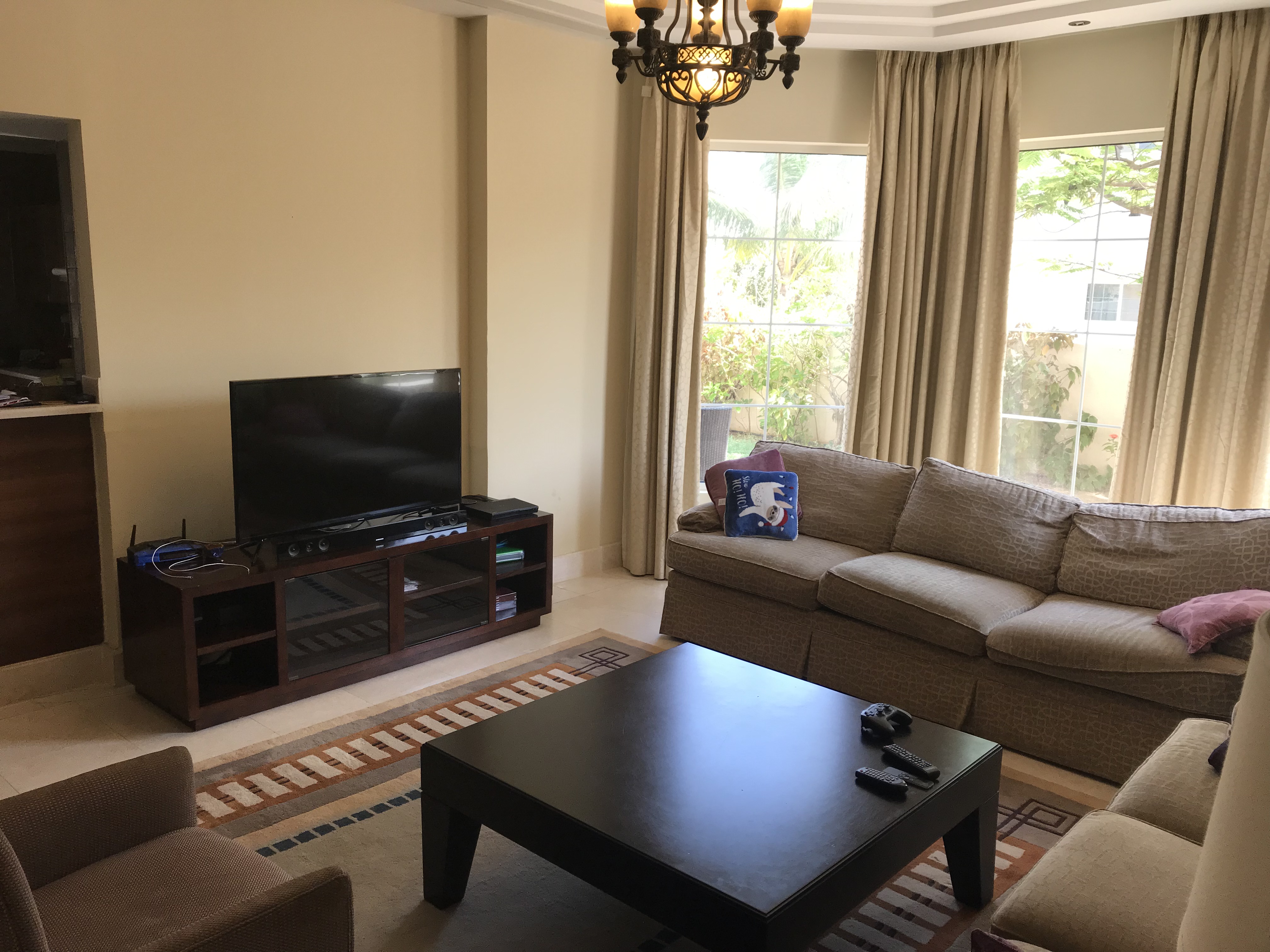
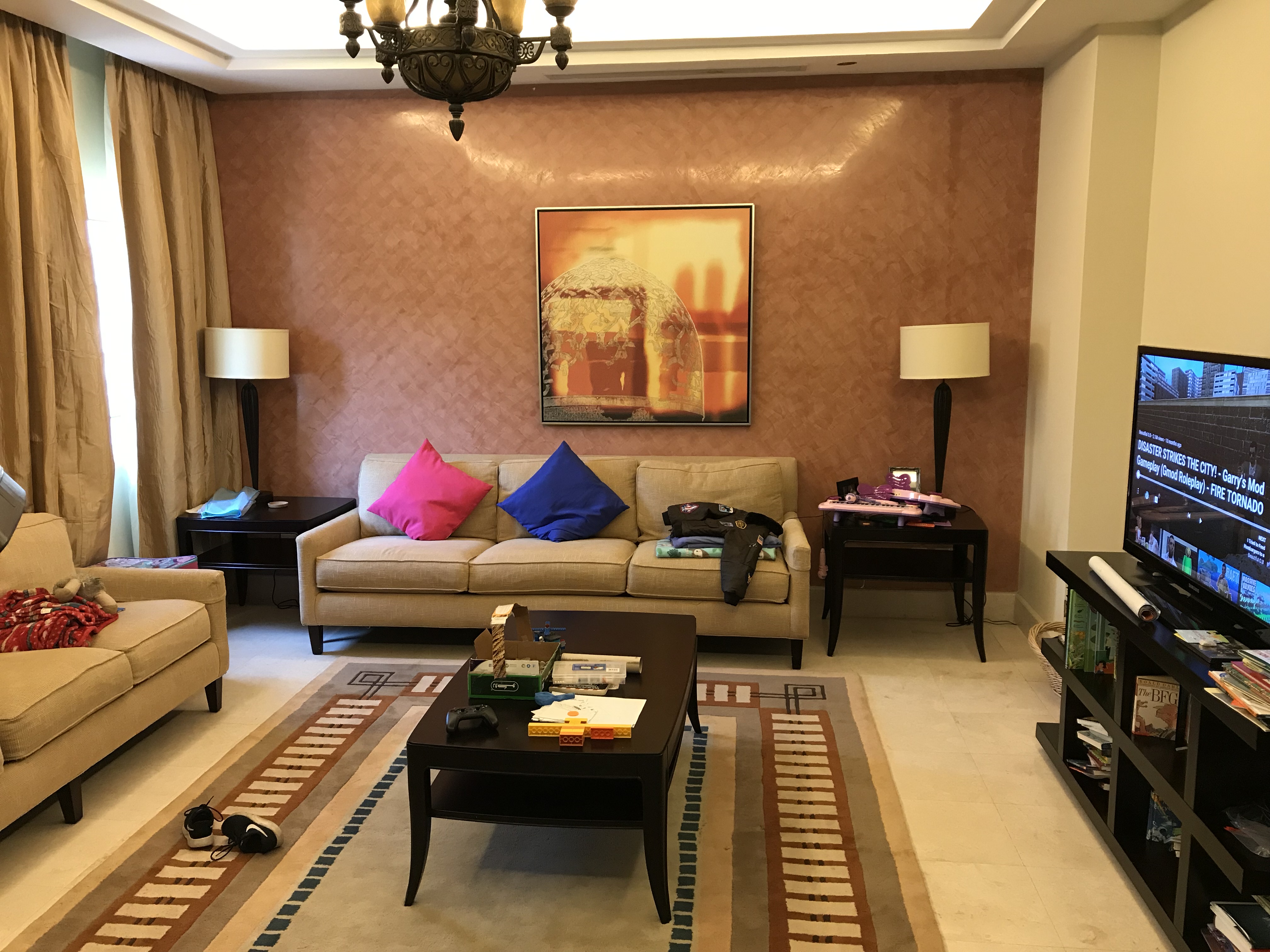
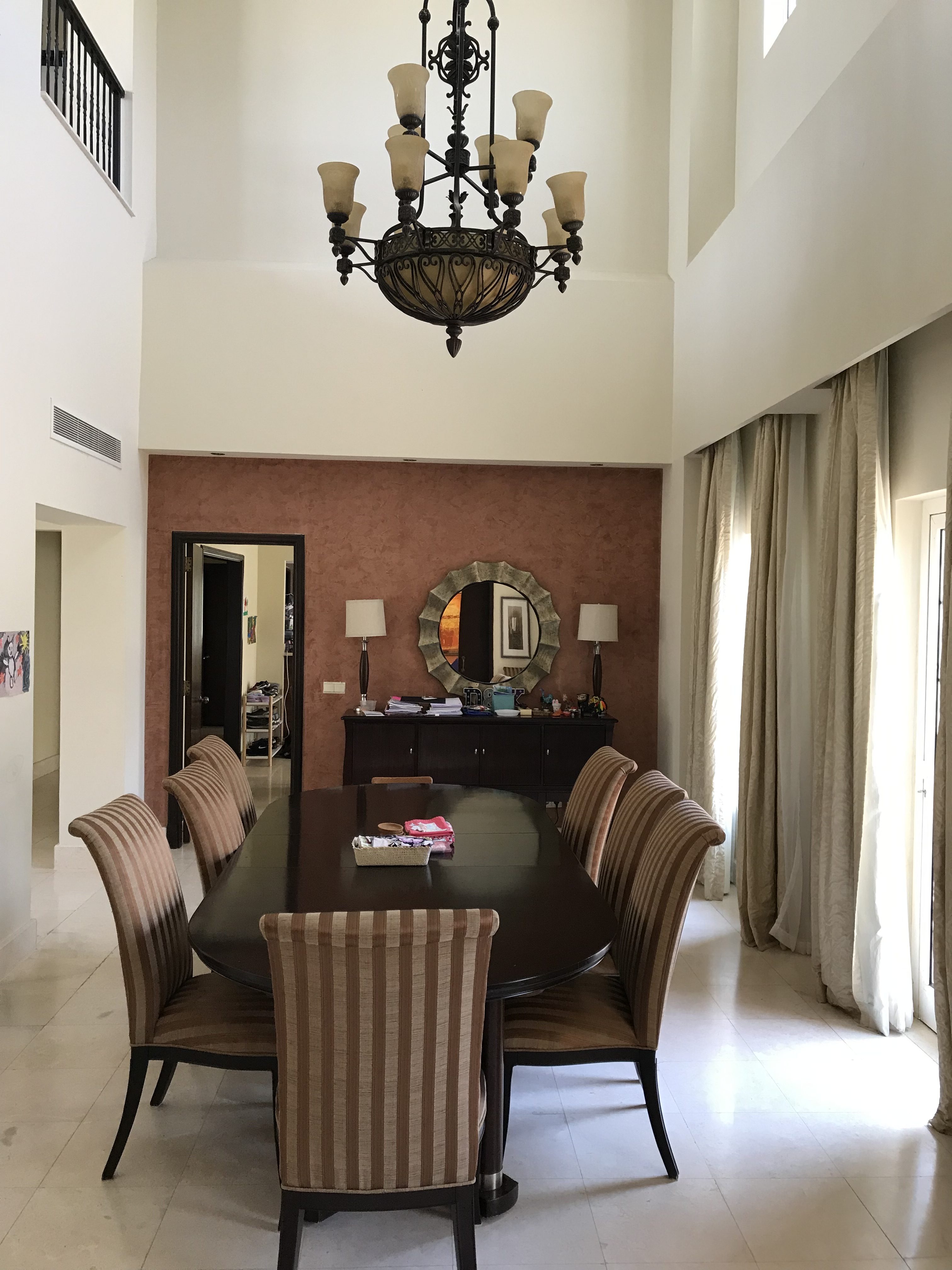
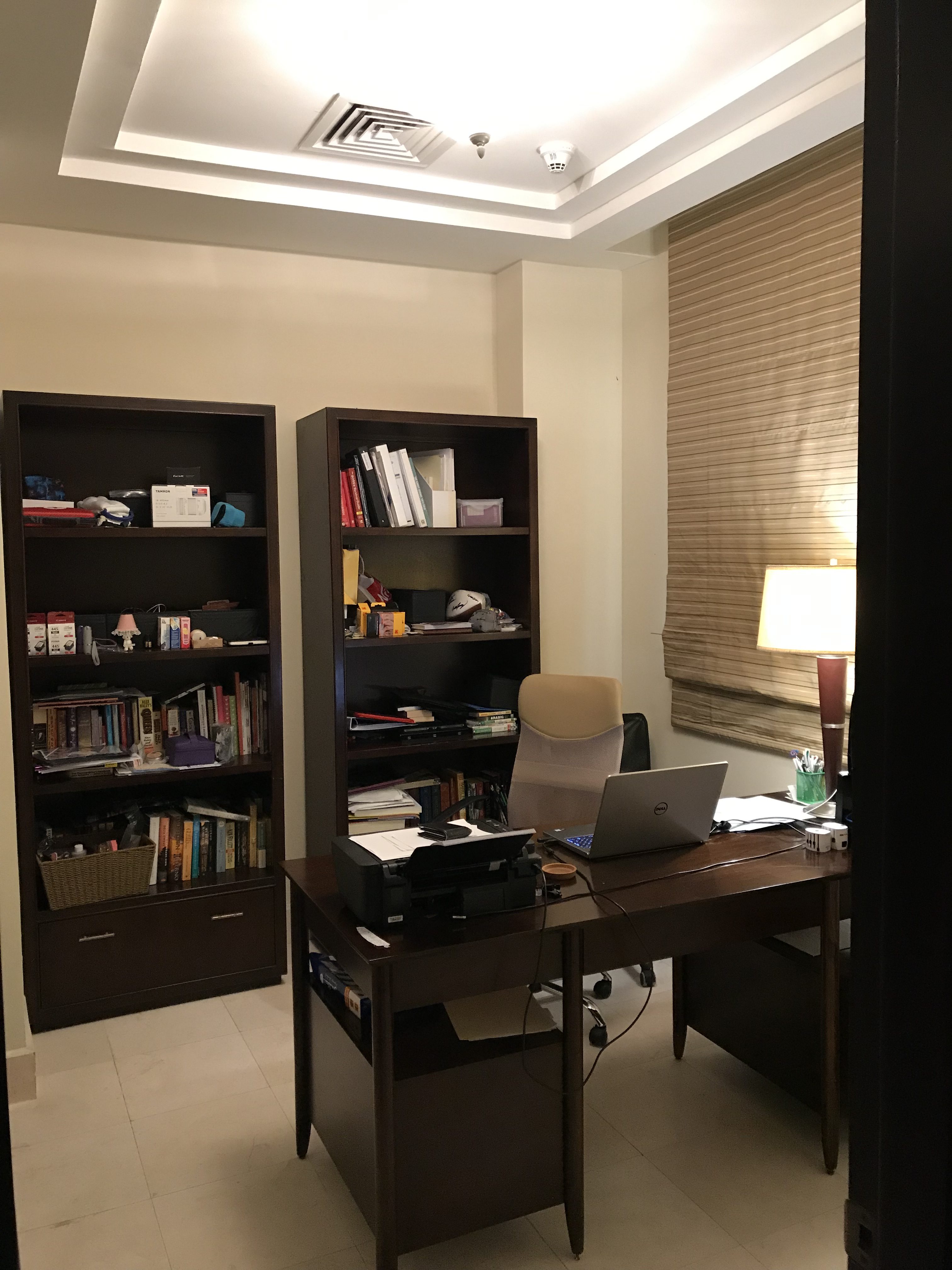


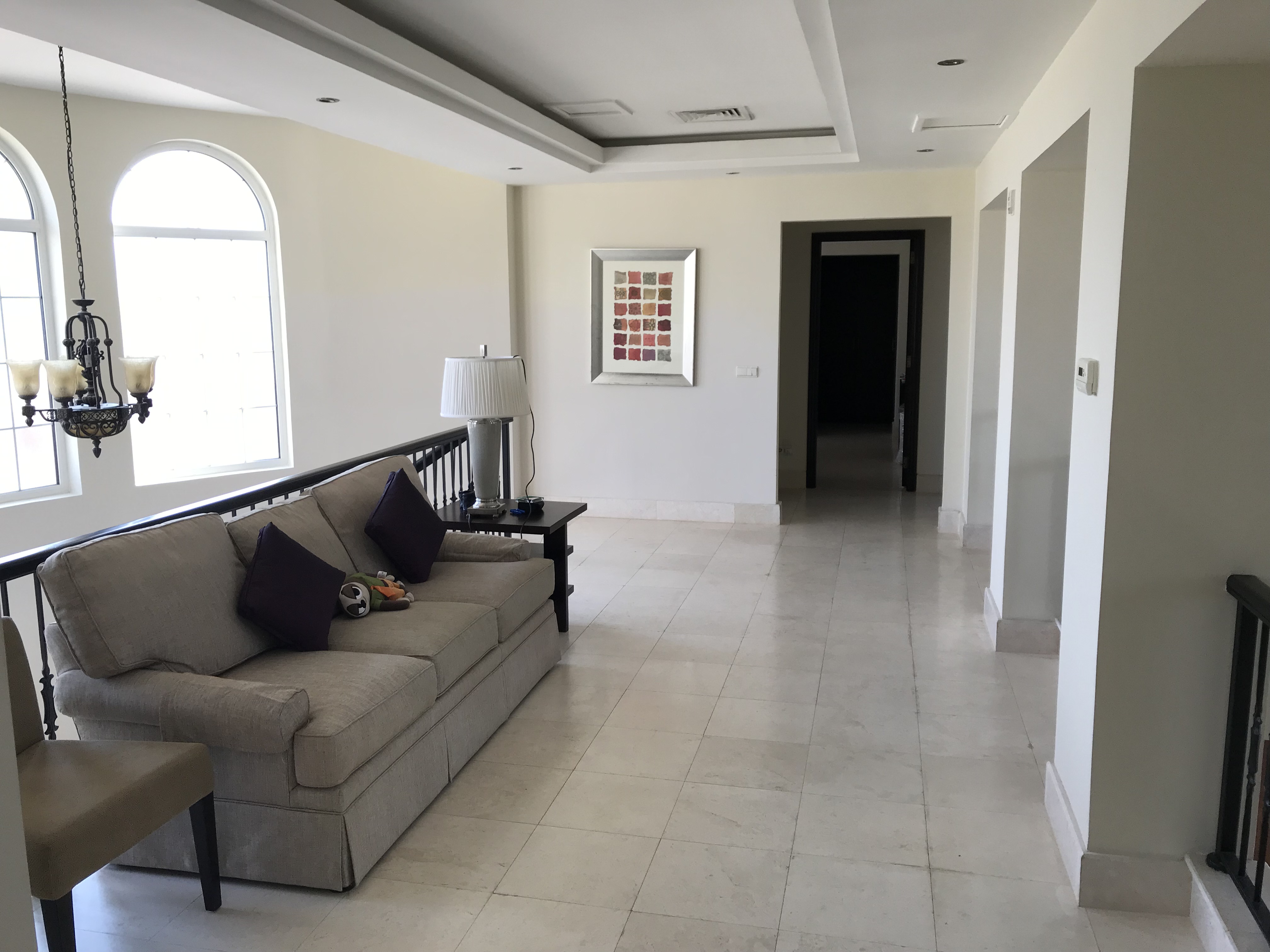
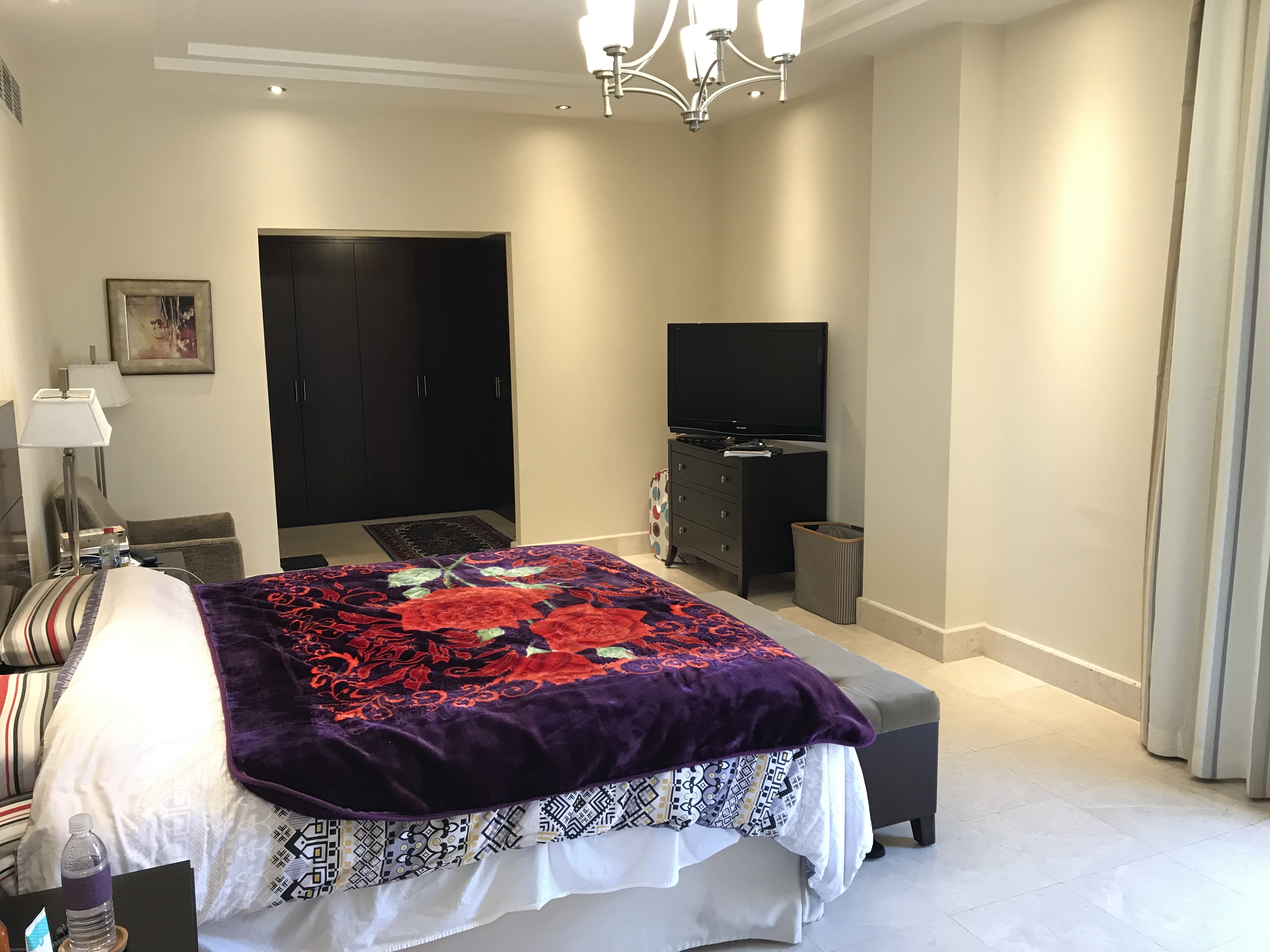
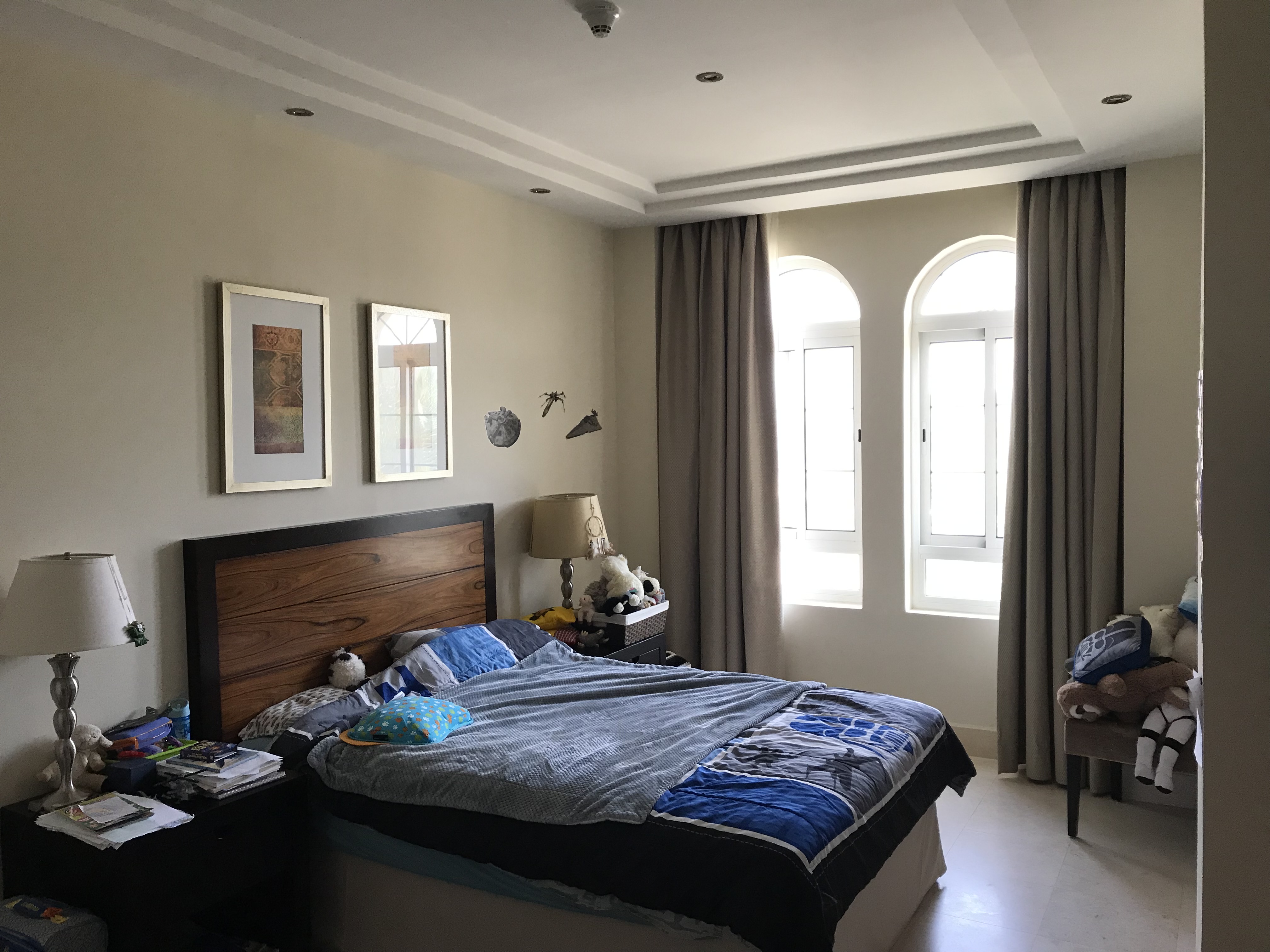
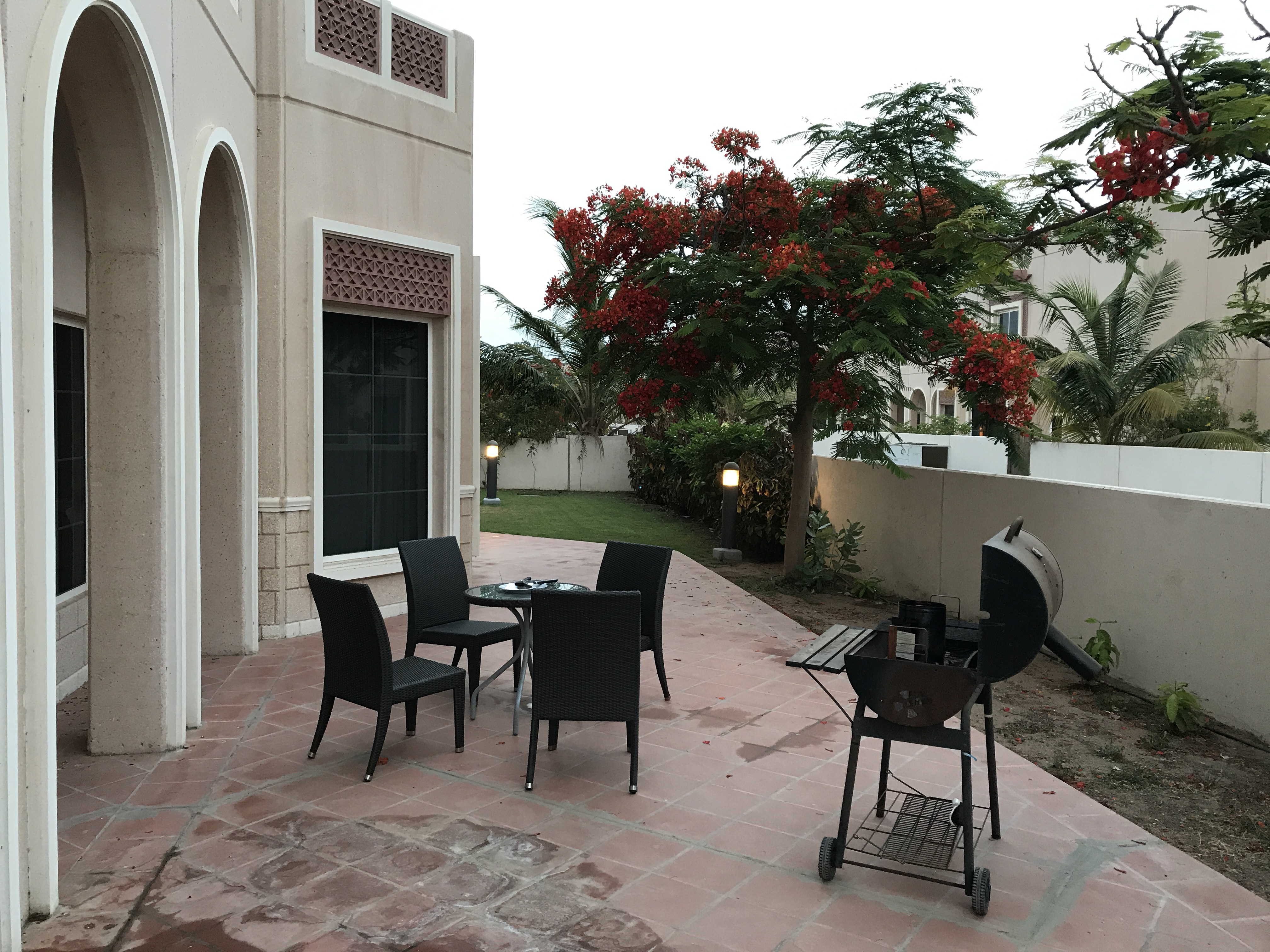
Domestic Helpers:
As mentioned above the larger 3 and 4 bedroom houses come with a designated additional small room and attached bathroom meant for live-in full-time domestic helpers. For most of us from the US, the idea of a full-time live-in maid/nanny/cook is something we have only ever seen on tv. However, in KSA and many other countries where US expats work this is very common and the cost of employing a domestic helper is fairly modest. In KSA a full-time domestic helper will typically cost around $500 a month to employ and they will typically manage everything from grocery shopping to cooking and cleaning to child sitting and even nanny services. They typically work six days a week from breakfast until dinner time and take Saturdays off. Some specialize in certain areas and as with anything else every individual is different and will have their own strengths and weaknesses. We personally decided not to employ a domestic helper as we felt a little weird having a stranger living with us, but many of our friends, especially those with babies or very small children, have them and really appreciate all the help they provide. Besides the cost and potential loss of privacy that comes with having someone living in your house the only other risk is that domestic helpers have to be sponsored and will therefore be considered a dependent just like your children and spouse. So, if the domestic helper breaks any rules you might be held to some level of responsibility as their sponsor.
Finally, for those that need a little help but don’t like the idea of having a stranger living in their house there is a middle ground option. For a small fee (~$40 a week) you can arrange to have a team of two maids come to your house for 2 hours to do a full and deep cleaning. This is what we personally do and since Katie is not working, she prefers to handle all the grocery shopping, cooking, and day to day house hold cleaning and laundry and then use the weekly maid service to do the more thorough top to bottom cleaning. You can also schedule more frequently if you prefer but for us, we find once a week seems to be the best rhythm.
Furniture and Appliances:
The housing provided by the compounds comes fully furnished including all furniture (couches, desks, chairs, bookcases, beds, dressers, dining room table, coffee tables, lamps, etc.), appliances (washer and dryer, fridge and freezer, microwave, stove and range, toaster, TVs, and cable boxes), linens (bedding sheets, towels, and pillows), and kitchenware (pots and pans, silverware, cups, bowls, and plates). Even some decorations including pictures and art on the walls is already provided. All you need to bring is your own personal clothing and then after a quick trip to the grocery store you have a fully up and running house.
Utilities:
All the utilities required for the house are included and completely free. Water is provided via a dedicated desalination plant for the compound and is safe to drink directly. We also use water directly from the taps for cooking. Electricity is also free and we see some people abusing or becoming lazy in their behaviors (leaving doors open with AC on and lights on in empty rooms) because of that, but it’s still a very nice benefit because the size of the AC units and fact that they have to run basically 24/7 would make for an incredibly high electric bill if you had to pay for these yourself. Trash is picked up every other day free of charge from the three separate bins (recycle, trash, and food waste) placed in front of your house.
General Maintenance:
One of the other great features of living in the compounds is the excellent and completely free maintenance services available via a simple phone call. Since you don’t technically own the house you are not responsible for the cost of upkeep or repair or replacement of any items or systems in the house. In our experience nearly every non-critical repair or maintenance request has been answered within 1-2 days maximum and if we mark something as critical it usually gets fixed within an hour or two max. Specially we had one of the two AC units (the one feeding cold air to the upstairs rooms) go out in July when the temperature can reach over 120 degrees F outside during the day. Within 15 minutes of calling the service request number a team was already inspecting the AC unit and within about 2 hours it was up and running again as normal. The actual temperature in the house only went up 2 or 3 degrees as the downstairs unit was able to handle most of the load, but it was nice to have such a quick response. Less critical things we have had done include clearing a clogged drain, fixing a cracked tile in the bathroom, and a curtain rod the kids accidentally pulled of the wall in the living room. In all of these cases things were fixed immediately and our total cost for these repairs and service calls was exactly $0. Finally, all basic yard service (mowing and trimming trees and hedges) is also included and handled on a weekly basis by the compound’s ground crews for the front yard. Backyard is the resident’s responsibility but can also be out sourced to the ground crews for a small fee (~$10-20/month).
Things we ended up buying:
As you can see above, almost everything you could possibly need is provide with the house, but there are a few additional items we have purchased over the last two years just based on our own personal preferences. This is not an exhaustive list and I have left off some of the small IKEA items, but will try to highlight just the larger personal housing item purchases. As always if there is something I missed or you have a question about a specific item not listed just let us know via the comments and we can share more details on those items.
1. Master Bedroom Mattress: This was probably our biggest household purchase. The bedding provided was clean and new and seemed to be of good quality, but the preference in the Middle East is for a very stiff mattress. We prefer more of the pillow top style mattress and so we bought one and had it delivered from a store in Jeddah called “American Bed”. The KAUST maintenance team then simply came and picked up the original mattress and marked it off our housing inventory list.
2. VPN enabled Router: This is a must in my opinion. You will receive free internet and even basic TV package through the compound, but if you want to watch or stream Hulu, Netflix, HBO Go, Showtime, or other channels from the US you will need a VPN enabled router. Even if these sites were not blocked by the KSA censors, HBO, Netflix, etc. won’t stream video if they see that you are logging on from an IP address outside of the US. With a VPN enabled router you can mask your IP so that it looks like you are logging in from the US. We personally use a Linksys WRT1200AC router and pay a small fee of $100/year to ExpressVPN and with that we are able to stream and watch all of our favorite shows on HBO Go, Showtime, Hulu, and Netflix, exactly the same as if we were in the US.
3. Charcoal Grill: The house comes with almost every other appliance and cooking equipment you could possibly need except for an outdoor grill. I have always enjoyed cooking out and since it is sunny about 350 days a year in KSA we end up grilling out at least once a week almost every week. Propane tanks are very hard to find, but charcoal is widely available including even Kingsford so we purchased a nice Weber Grill when we arrived from the SACO Hardware Store in Jeddah.
Next in our Series: Recreation Centers
Interested to learn more? Then check out the next post in this series on Recreation Centers.



2 Replies to “Compound Life Part 1 – Housing”